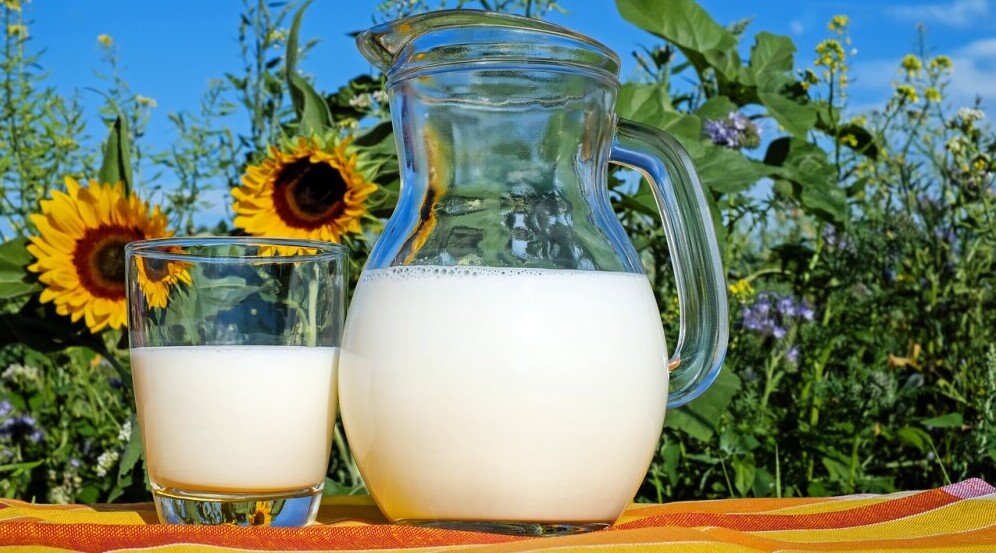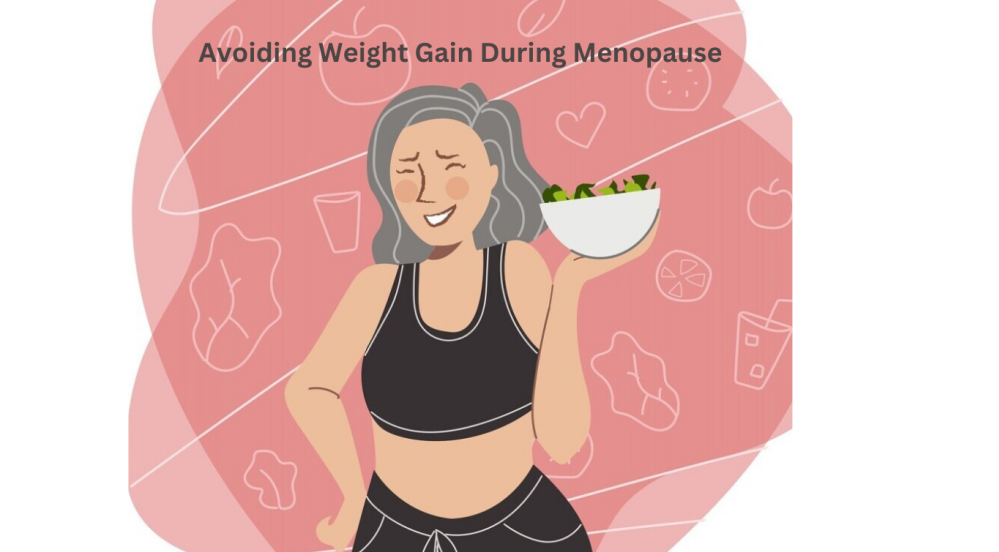
Menopause is a natural phase in a woman’s life, but it can bring unexpected challenges—weight gain. “Avoiding Weight Gain During Menopause” dives into this critical issue, offering practical insights and science-backed advice on how to maintain a healthy weight during this transition.
Whether you’re dealing with hormonal changes, slowed metabolism, or lifestyle shifts, this guide aims to empower women with the knowledge and strategies to stay fit, energized, and confident. Let’s explore how you can manage these changes while prioritizing your well-being!
Avoiding Weight Gain During Menopause
Table of Contents
Avoiding Weight Gain During Menopause: Introduction
Menopause can be a frightening phase in a woman’s life, marking the end of her reproductive years. Generally, it kicks in around the age of 45 to 55, but experiences can vary widely. Menopause isn’t an abrupt stop but rather a gradual process. It actually has multiple stages: perimenopause, menopause, and postmenopause.
During perimenopause, the body starts producing less estrogen and progesterone. This phase can last anywhere from a few months to several years and can bring along a range of symptoms like irregular periods, hot flashes, and sleep disturbances.
The official ‘menopause’ stage is said to have occurred once you’ve gone 12 consecutive months without a menstrual period. Postmenopause is everything after that one-year mark.
Hormonal changes are the chief culprits behind the transformations you feel during menopause. Estrogen, the hormone that plays a big role in reproductive health, dips significantly. This drop doesn’t just affect the menstrual cycle; it has widespread impacts on the body. You might notice changes in bone density, fluctuations in weight, and shifts in mood and energy levels.
Menopause symptoms can be a mixed bag. Hot flashes are probably the most famous, with sudden bursts of heat that can leave you drenched. Night sweats can mess with your sleep, making you feel tired and cranky. Mood swings, memory lapses, and even joint pain can pop up, making daily life a bit tricky.
Understanding what’s happening in your body can make this transition a bit easier to handle. Knowledge is power, after all. Recognizing the signs and symptoms means you can take proactive steps to manage them, whether through lifestyle changes, dietary adjustments, or consultations with healthcare providers.
Why Protein Becomes More Crucial During Menopause
As menopause sets in, your body goes through a whirlwind of changes. With estrogen levels dipping, maintaining hormone balance becomes more challenging. This is where protein steps in as a major player. It acts like a building block, helping your body to produce and regulate hormones more efficiently.
Muscle mass naturally begins to decline with age, and this process speeds up during menopause. Less muscle means a slower metabolism, which can lead to weight gain. Protein is essential for muscle maintenance and growth, helping you to keep a healthy metabolic rate. Incorporating enough protein into your diet can counteract some of these effects, making weight management a bit easier.
Bone health is a huge concern during menopause. Estrogen plays a vital role in maintaining bone density, and as its levels drop, bones can become more fragile, increasing the risk of fractures. Protein, especially when paired with calcium and vitamin D, supports bone health. It contributes to stronger bones and might help reduce the risk of osteoporosis.
Menopausal symptoms like hot flashes, mood swings, and sleep disruptions can wreak havoc on your day-to-day life. Protein can help manage these symptoms in various ways. For instance, a higher protein intake can stabilize blood sugar levels, helping to keep mood swings in check and providing a more consistent energy level throughout the day.
Being proactive about your diet, especially regarding protein intake, can play a pivotal role in navigating menopause more smoothly. Including diverse protein sources such as lean meats, dairy, legumes, and nuts can make a world of difference. Small, consistent dietary changes can lead to significant improvements in how you feel and function during this demanding phase of life.
Lesser-Known Benefits of Protein for Menopausal Women
One of the hidden gems in protein’s bag of tricks is its impact on skin health. As estrogen levels wane, skin can lose its elasticity and firmness. Protein, particularly from collagen-rich sources, can help maintain skin’s structural integrity, reducing the appearance of wrinkles and keeping it supple.
Memory lapses and brain fog can be pretty disconcerting during menopause. Here’s where protein steps in again. Amino acids, the building blocks of protein, are crucial for neurotransmitter function. A diet rich in protein can support cognitive health, helping to keep your mind sharp.
Heart health often takes a front seat during menopause. With changing hormone levels, cholesterol levels can become harder to manage. Protein intake, especially from plant-based sources, can help support cardiovascular health. This can aid in maintaining healthy cholesterol levels and improving overall heart function.
Managing weight can feel like an uphill battle during menopause. Protein has a higher thermic effect compared to fats and carbs, which means your body burns more calories digesting it. This not only boosts your metabolic rate but also helps in maintaining a healthier weight. Plus, protein-rich foods tend to be more satisfying, reducing overall calorie intake.
The less obvious perks of protein make it a true ally during menopause. From aiding skin health and cognitive function to supporting heart health and weight management, protein proves its worth beyond just muscle maintenance. Incorporating a variety of protein sources into your daily meals can offer comprehensive benefits and make menopause a bit more manageable.
Choosing the Right Protein Sources During Menopause
When it comes to protein sources, there’s a lot to choose from, and not all protein is created equal. Animal-based proteins like chicken, turkey, fish, eggs, and dairy are often packed with essential amino acids. These are great for muscle recovery and overall health. Lean meats and fatty fish such as salmon can also provide healthy fats, which can be beneficial for heart health.

On the flip side, plant-based proteins are gaining popularity and for good reason. Beans, lentils, tofu, tempeh, quinoa, and nuts are excellent sources. These come with the added benefit of fiber, which aids in digestion and helps to keep you full longer. Plus, plant-based diets can lower the risk of heart disease, which is an added bonus during menopause.

The key is to incorporate a variety of protein sources into your diet. Mixing it up can ensure that you’re getting a range of nutrients. For instance, things like adding a handful of nuts to your yogurt or mixing beans into your salad can make a big difference. Diversity is not just exciting for your palate but also beneficial for your overall health.
Dining out doesn’t have to be a challenge either, opt for dishes that feature grilled chicken, fish, or plant-based proteins. Choose sides like quinoa or beans instead of fries or pasta. Watching portion sizes and avoiding heavy, creamy sauces can also help you stay on track. Most restaurants offer a variety of choices that can fit into a protein-rich diet if you know what to look for.
Supplements and protein powders can be a convenient option, especially if you have a busy lifestyle. However, it’s crucial to choose wisely. Look for protein powders with minimal additives, sugars, and artificial ingredients.
We recommend a Low-Carb protein supplement which allows you to gain all the essential protein benefits while not ingesting unnecessary calories. Extremely beneficial if you also struggle with high blood sugar levels. BioTrust offers a great Low-Carb protein supplement.
Whey protein is a great option for those who tolerate dairy, while pea or hemp protein offers good alternatives for those who prefer plant-based options. Always consider consulting with a healthcare provider to find what suits you best.
Learn more about proteins here: Best Protein Powder for Women’s Weight Loss
Practical Tips for Increasing Protein Intake Safely
Setting realistic protein goals is the first step towards better health during menopause. You don’t need to go overboard; nutritionists often recommend 0.54 to 0.68 grams of protein per pound of body weight. For instance, if you weigh 150 pounds, you should consume 82 to 102 grams of protein daily.
Adjust this based on your activity level and consult with a healthcare provider for personalized advice.
Sneaking protein into your meals can be easier than you think. Start your day with a high-protein breakfast like Greek yogurt topped with nuts and seeds, or a smoothie blended with protein powder.
For lunch, add some grilled chicken or tofu to your salad. Dinner could feature beans, lentils, or a lean piece of fish. Snacks? Think along the lines of a handful of nuts, a piece of cheese, or a protein bar with clean, simple ingredients.
It’s also important to be aware of the risks of excessive protein intake. Consuming too much protein can strain the kidneys and liver, especially if you already have underlying health conditions. Balance is key in avoiding these pitfalls. Aim to distribute protein intake evenly throughout the day, rather than loading up on it all at once.
Hydration is often overlooked when upping protein intake. Water helps in metabolizing protein and flushing out waste products from the body. Make sure you’re drinking enough water, especially if you’re adding protein supplements to your diet.
Consulting with healthcare providers ensures that you’re making the best choices for your individual health needs. They can help you tailor your protein intake to support overall well-being, taking into account any specific health concerns or dietary restrictions you might have. Personalized advice can go a long way in maximizing the benefits of protein during menopause.
Avoiding Weight Gain During Menopause: Summary
Selecting the right protein during menopause is crucial for overall health. Animal-based proteins like chicken, fish, eggs, and dairy provide essential amino acids for muscle recovery, while lean meats and fatty fish offer heart-healthy fats. On the other hand, plant-based proteins—such as beans, lentils, tofu, quinoa, and nuts—offer fiber and lower the risk of heart disease.

Incorporating a variety of proteins into your diet ensures a balance of nutrients. Simple swaps like adding nuts to yogurt or beans to salads can make a difference. Dining out? Opt for grilled proteins and fiber-rich sides like quinoa or beans.
Protein supplements, like low-carb or whey, can be convenient but should be chosen carefully to avoid excess additives. We highly recommend BioTrust because of their extensive selection and Low-Carb options.
Aim for 0.54 to 0.68 grams of protein per pound of body weight. For instance, if you weigh 150 pounds, you should consume 82 to 102 grams of protein daily. Spread intake evenly and stay hydrated.
Always consult a healthcare provider to tailor protein intake to your personal health needs.
Thanks for reading, we look forward to your visit at EliteHealthAffiliates.com – Your Health and Wellness Authority!
